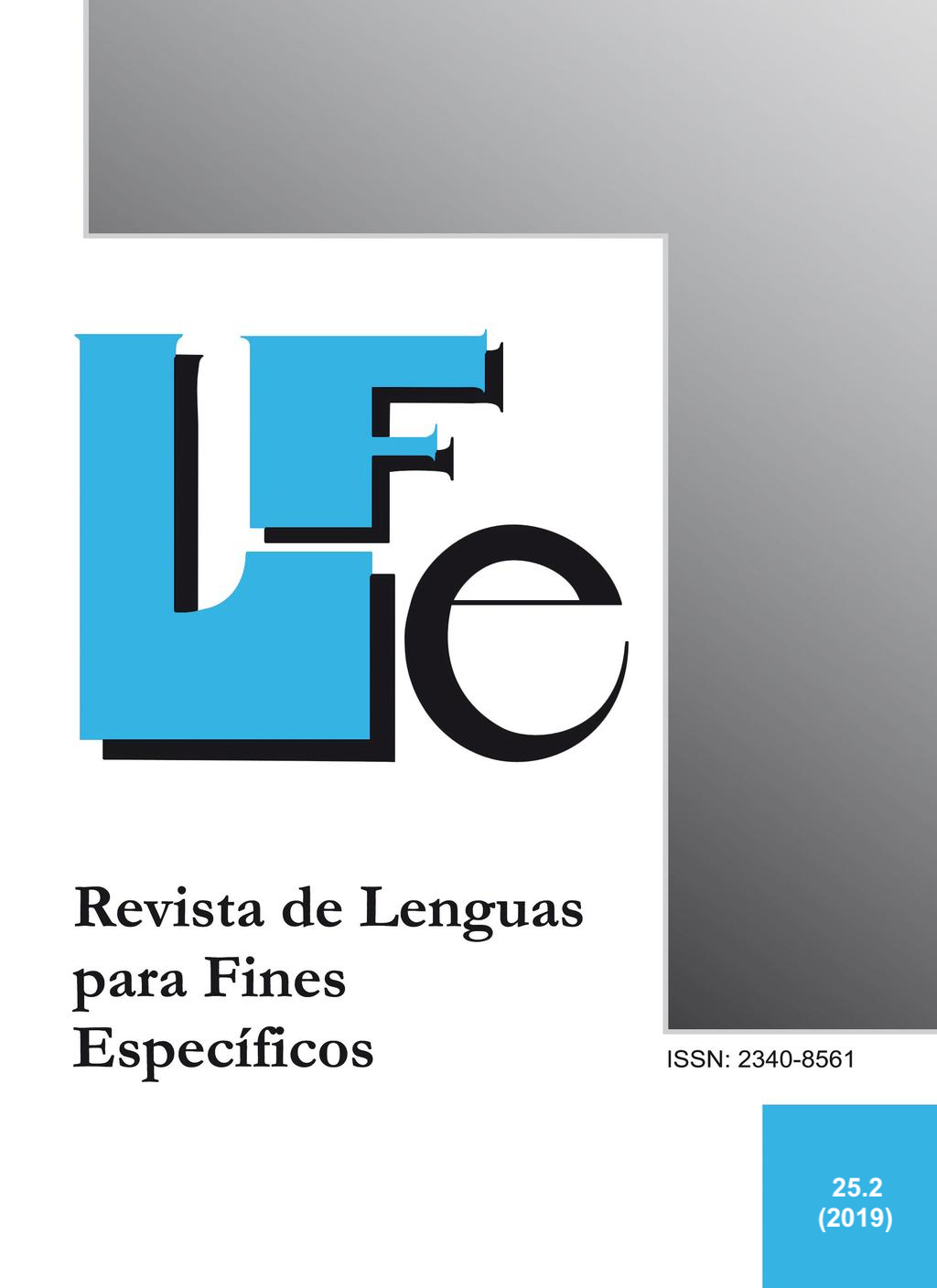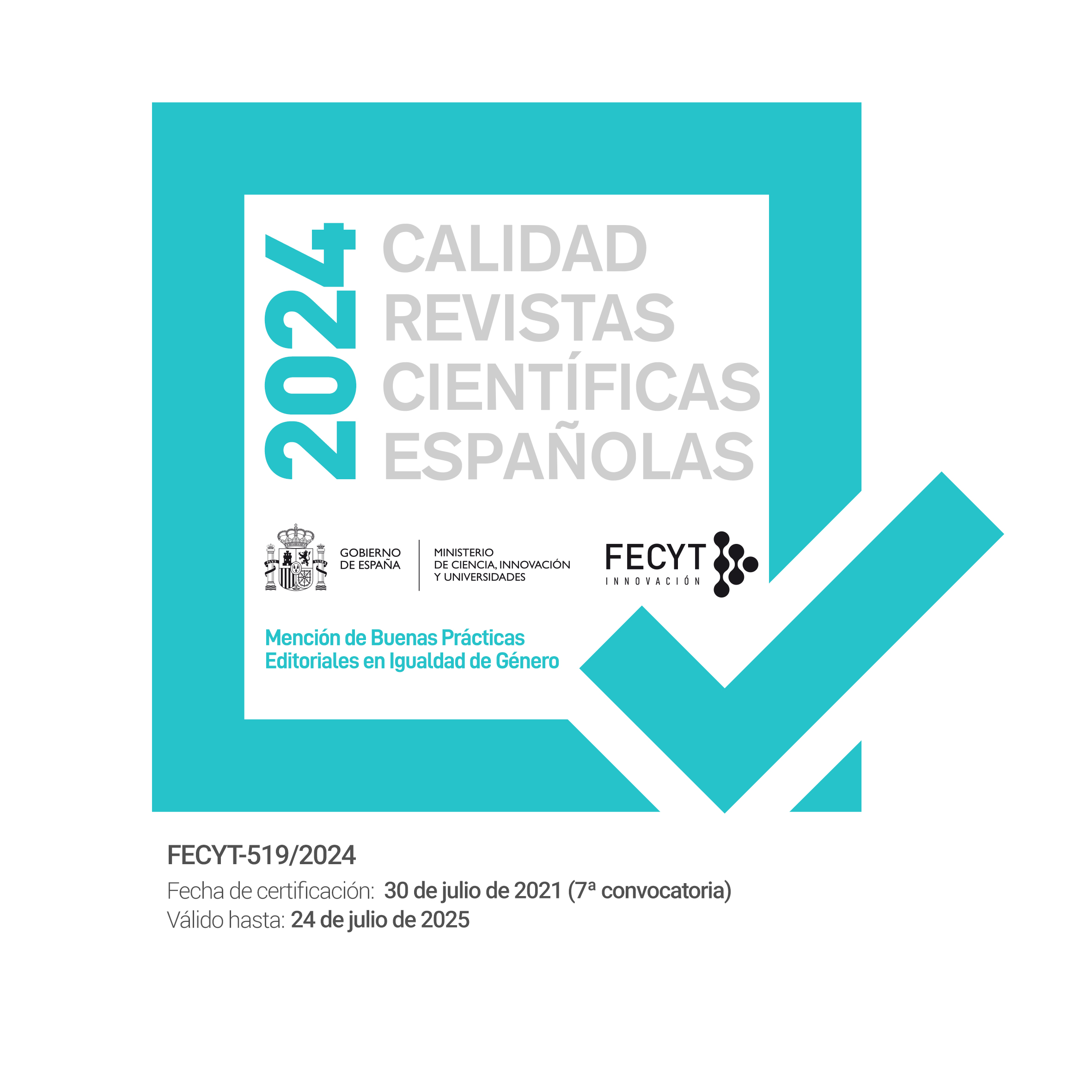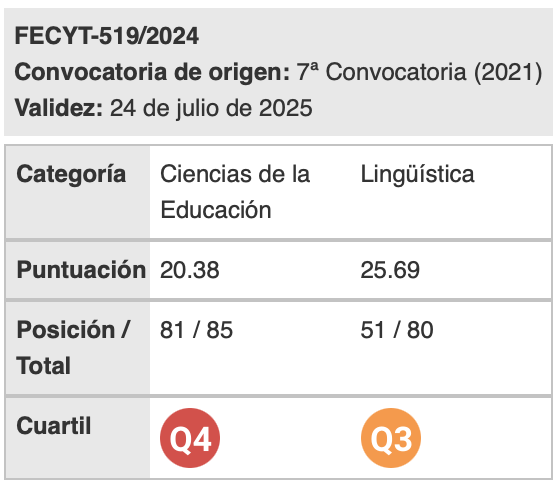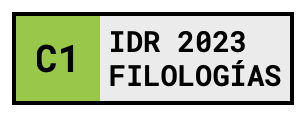Attitudes that Annoy us at Work. An Approach to Impoliteness Strategies and Cultural Differences
Palabras clave:
poder, identidad, diferencias culturales, estrategias de descortesía, características socialesResumen
This paper, which forms part of the research for my doctoral dissertation, presents a new taxonomy of what I have named social characteristics of individuals. This is a new approach which reorganises the traditional concepts of face and social rights. Social characteristics are understood and emphasised differently by every culture. Thus, social characteristics will be dealt with by every cultural group, depending on and according to the cultural values of that group. On the other hand, these four social characteristics of individuals can be attacked or threatened by a series of impoliteness strategies. As an example, this article will analyse two of the most studied cultural dimensions: power and identity. To illustrate these ideas, I will present the data obtained from some questionnaires done by two different groups of respondents, a Spanish one and an American one. The different values that these two cultures have will reflect on their answers.
Descargas
Citas
Bennett, J. M. (2004). Developing intercultural sensitivity: An integrative approach to global and domestic diversity. In Landis, D., Bennett, J. M. y Bennett, J. (Eds.) Handbook of Intercultural Training. Thousands Oaks: Sage. (pp. 147-175).
Bravo, D. (1999). ¿Imagen “positiva” vs imagen “negativa”? Pragmática sociocultural y componentes de face. Oralia 2, 155-184.
Bravo, D. (2002). Actos asertivos y cortesía: Imagen del rol en el discurso de académicos argentinos. In Bravo, D. and Placencia, M.E. (Eds.), Actos de habla y cortesía en español, (pp. 141-174). London: LINCOM Studies in Pragmatics 5.
Bravo, D. (2003). Actividades de cortesía, imagen social y contextos socioculturales: una introducción. In Bravo, D. (Ed.), La perspectiva no etnocentrista de la cortesía: Identidad sociocultural de las comunidades hispanohablantes. Actas del Primer Coloquio del Programa EDICE, (pp.98-108). Stockholm: Programa EDICE.
Bravo, D. (2004). Tensión entre universalidad y relatividad en las teorías de la cortesía. In Bravo, D. and Briz, A. (Eds.), Pragmática sociocultural: Estudios sobre el discurso de cortesía en español, (pp. 15-37). Barcelona: Ariel.
Bravo, D. (2005). Categorías, tipologías y aplicaciones. Hacia una redefinición de la cortesía comunicativa. In Bravo, D. (Ed.), Estudios de la (des)cortesía en español. Categorías conceptuales y aplicaciones a corpora orales y escritos, (pp. 21-52). Buenos Aires: Dunken.
Bravo, D. (2008). Las implicaciones del estudio de la cortesía en contextos del español. Una discusión. Pragmatics 18 (4), 577-603.
Bravo, D. (2010). Pragmática socio-cultural. La configuración de la imagen social como premisa socio-cultural para la interpretación de actividades verbales y no verbales de imagen. In Orletti, F. and Mariottini, L. (Eds.), (Des)cortesía en español. Espacios teóricos y metodológicos para su estudio, (pp. 19-46). Rome: Università degli Studi Roma Tre y el Programa EDICE.
Brown, P. and Levinson, S. (1987). Politeness: Some Universals in Language Usage. Cambridge: Cambridge University Press.
Cashman, H. R. (2006). Impoliteness in children’s interactions in a Spanish/English bilingual community of practice. Journal of Politeness Research 2, 217-246.
Goodwin, R., & Plaza, S. (2000). Perceived and Received Social Support in two Cultures: Support and Collectivism Among Spanish and British Students. Journal of Social and Personal Relationships, 17 (2), 289-290.
Goffman, E. (1967). International Ritual: Essays on Face to Face Behaviour. New York: Doubleday.
Guerra Bernal, N. (2008). El discurso conflictivo en interacciones coloquiales en inglés y español. El uso de las fórmulas de tratamiento. In Briz, A., Hidalgo, A., Albelda, M., Contreras, J. and Hernández Flores, N. (Eds.), Cortesía y conversación: de lo escrito a lo oral. III Coloquio Internacional del Programa EDICE, (pp. 224-239). Valencia: Programa EDICE.
Hampden-Turner, Ch. and Trompenaars, F. (1993). The Seven Cultures of Capitalism. New York: Doubleday.
Hampden-Turner, Ch. and Trompenaars, F. (1998). Riding the Waves of Culture. New York: McGraw-Hill.
Hampden-Turner, Ch. and Trompenaars, F. (2000). Building Cross-Cultural Competence. Great Britain: Wiley.
Hampden-Turner, Ch. and Trompenaars, F. (2001). 21 Leaders for the 21st Century: How Innovative Leaders Manage in the Digital Age. New York: McGraw-Hill.
Hampden-Turner, Ch. and Trompenaars, F. (2004). Managing People across Cultures. Chichester: Capstone.
Hofstede, G. (2001 [1980]). Culture’s Consequences. Beverly Hills: Sage.
Hofstede, G. (2004 [1991]). Cultures and Organizations: Software of the Mind. London: McGraw-Hill.
Hofstede, G., Hofstede, G. J. and Minkov, M. (2010). Cultures and Organizations: Software of the Mind. London: McGraw-Hill.
Janney, R. and Arndt, H. (1993). Universality and relativity in Cross-cultural politeness research: Historical perspective. Multilingua 12, 13-50.
Kaul de Marlangeon, S. (2008). Tipología del comportamiento verbal descortés en español. In Briz, A., Hidalgo, A., Albelda, M., Contreras, J. and Hernández Flores, N. (Eds.), Cortesía y conversación: de lo escrito a lo oral. III Coloquio Internacional del Programa EDICE, (pp. 254-266). Valencia: Programa EDICE.
Kaul de Marlangeon, S. and Alba Juez, L. (2012). A typology of verbal impoliteness behaviour for the English and Spanish cultures. RESLA 25, 69-92.
Kluckhohn, F. and Strodtbeck, F.L. (1961). Variations in Value Orientations. Evanston, IL: Row, Peterson.
Kecskes, I. (2010). Intercultural Pragmatics. Berlin/New York: Mouton de Gruyter.
Kooyers, J. (2015). The United States and Spain: A Comparison of Cultural Values and Behaviors and Their Implications for the Multi-Cultural Workplace. Allendale, MI.: Grand Valley State University. Honors Projects, 399. <http://scholarworks.gvsu.edu/honorsprojects/399>
Leaptrott, N. (1996). Rules of the Game: Global Business Protocol. Cincinnati, Ohio: Thomson Executive Press.
Placencia, M. E. (2010). Descortesía, mitigación y comunicación intercultural. In Orletti, F. and Mariottini, L. (Eds.), (Des)cortesía en español. Espacios teóricos y metodológicos para su estudio, (pp. 399-430). Rome: Università degli Studi Roma Tre y el Programa EDICE.
Schwartz, S. (1992). Universals in the Content and Structure of Values: Theoretical Advances and Empirical Tests in 20 Countries. San Diego: Academic Press.
Schwartz, S. (1994). Beyond Individualism/collectivism: New Dimensions of Values. Newbury Park, CA: Sage.
Schwartz, S. (1999). A theory of cultural values and some implications for work. Applied Psychology: An International Review 48, 23-47.
Schwartz, S. (2006). Basic human values: Theory, measurement, and applications. Revue Française de Sociologie 42, 249-288.
Spencer-Oatey, H. (2000). Rapport management: A framework for analysis. In Spencer-Oatey, H. (Ed.), Culturally Speaking. Managing Rapport through Talk across Cultures, (pp. 11-46). London: Comtinuum.
Spencer-Oatey, H. (2003). Developing a framework for non-ethnocentric “politeness” research. In Bravo, D. (Ed.), La perspectiva no etnocentrista de la cortesía: Identidad sociocultural de las comunidades hispanohablantes. Actas del Primer Coloquio del Programa EDICE, (pp. 86-97). Stockholm: Programa EDICE.
Strenström, A. and Jorgensen, A. (2008). La función fática de los apelativos en el habla juvenil de Madrid y Londres. In Briz, A., Hidalgo, A., Albelda, M., Contreras, J. and Hernández Flores, N. (Eds.), Cortesía y conversación: de lo escrito a lo oral. III Coloquio Internacional del Programa EDICE, (pp. 355-365). Valencia: Programa EDICE.
Vélez, R., Ramos, E., Hernández, V., Carmena, E. y Navarro, J. (2004). Métodos estadísticos en ciencias sociales. Madrid: Ediciones Académicas S.A.
Descargas
Publicado
Cómo citar
Número
Sección
Licencia
Aquellos autores/as que tengan publicaciones con esta revista, aceptan los términos siguientes:
- Los autores/as conservarán sus derechos de autor y garantizarán a la revista el derecho de primera publicación de su obra, el cuál estará simultáneamente sujeto a la Licencia de reconocimiento de Creative Commons que permite a terceros compartir la obra siempre que se indique su autor y su primera publicación esta revista.
- Los autores/as podrán adoptar otros acuerdos de licencia no exclusiva de distribución de la versión de la obra publicada (p. ej.: depositarla en un archivo telemático institucional o publicarla en un volumen monográfico) siempre que se indique la publicación inicial en esta revista.
- Se permite y recomienda a los autores/as difundir su obra a través de Internet (p. ej.: en archivos telemáticos institucionales o en su página web) antes y durante el proceso de envío, lo cual puede producir intercambios interesantes y aumentar las citas de la obra publicada. (Véase El efecto del acceso abierto).

Revista de Lenguas para fines específicos is licensed under a Creative Commons Reconocimiento-NoComercial-SinObraDerivada 4.0 Internacional License.























